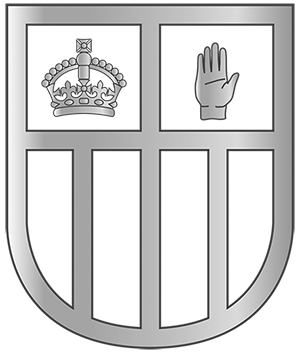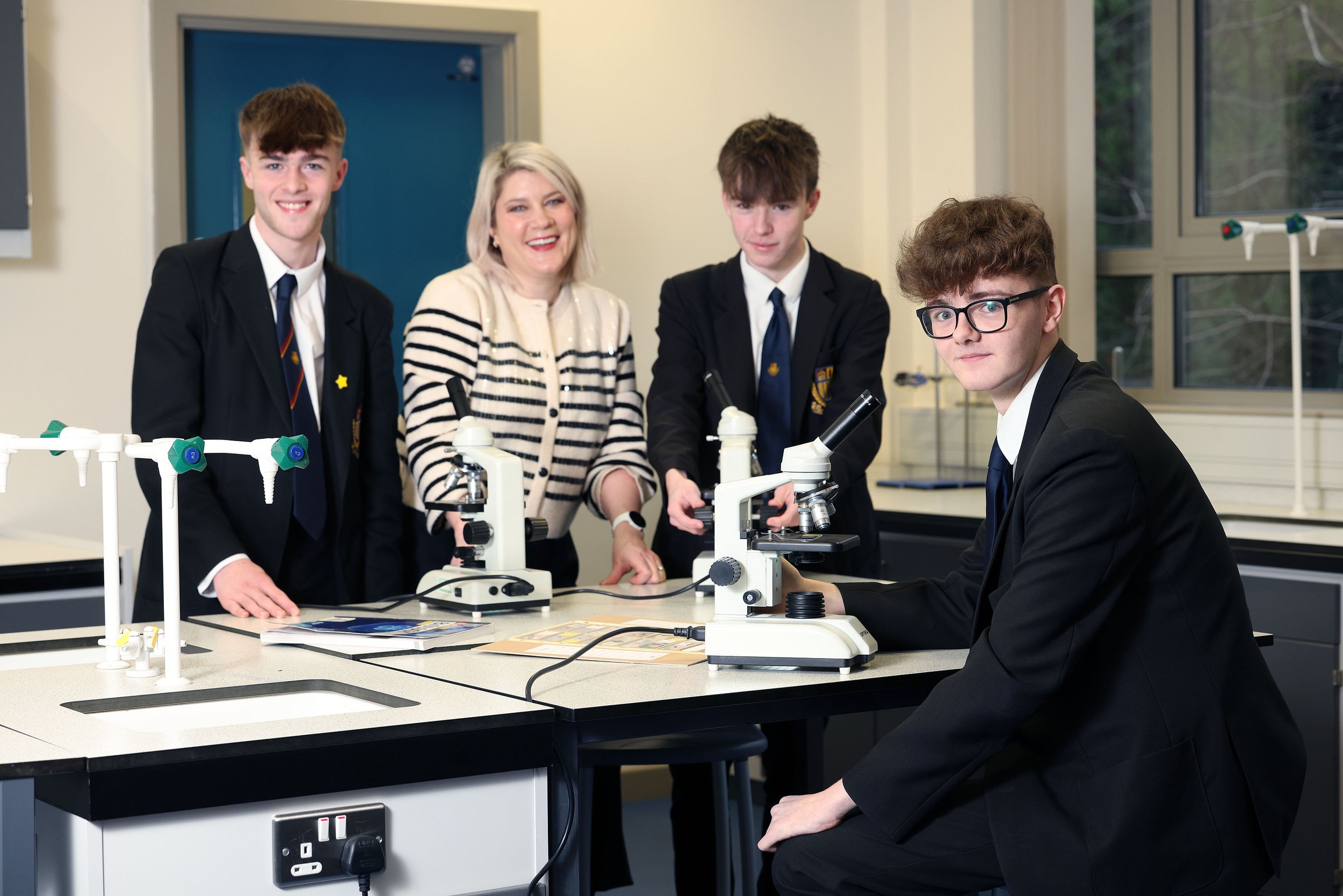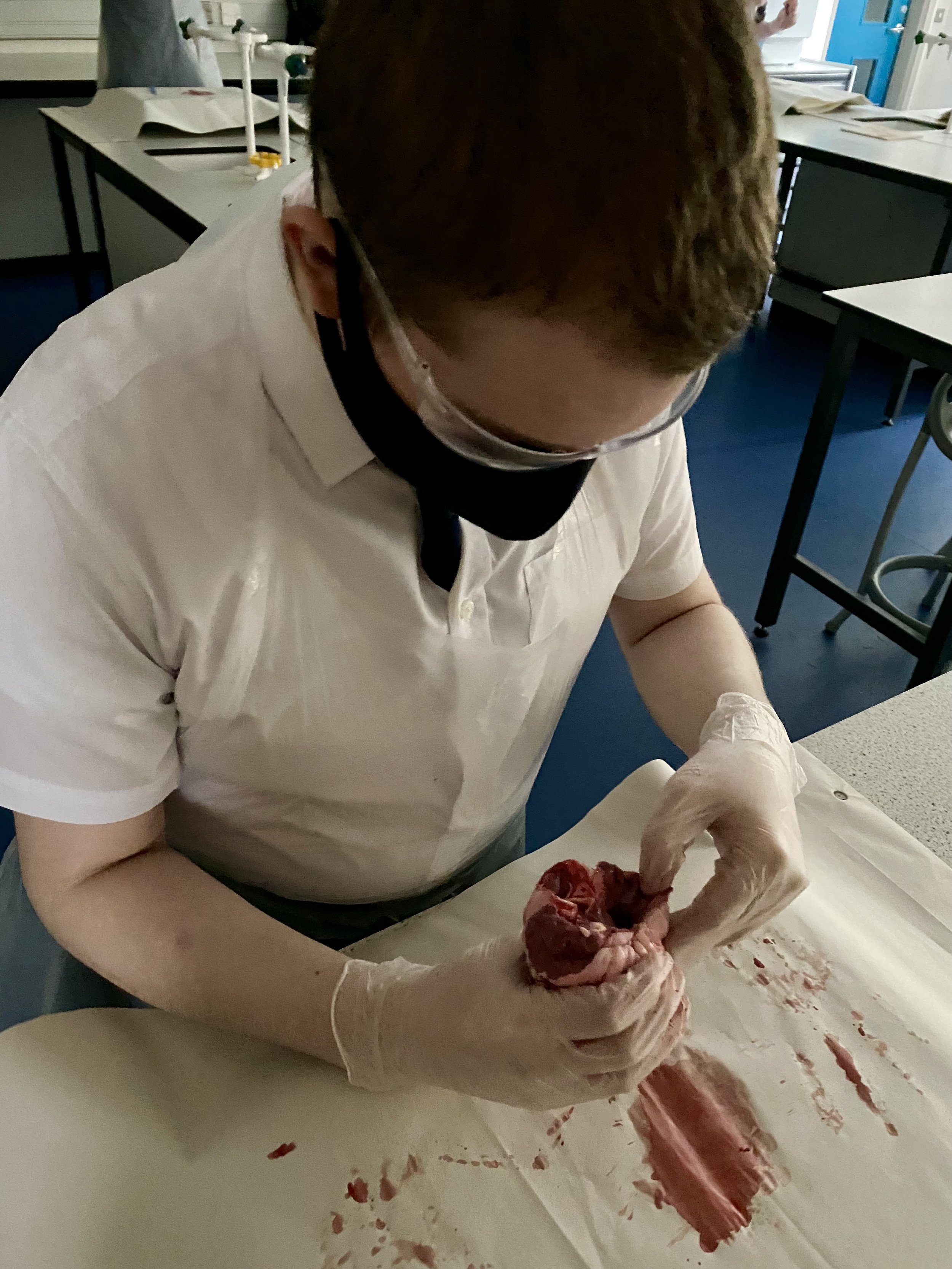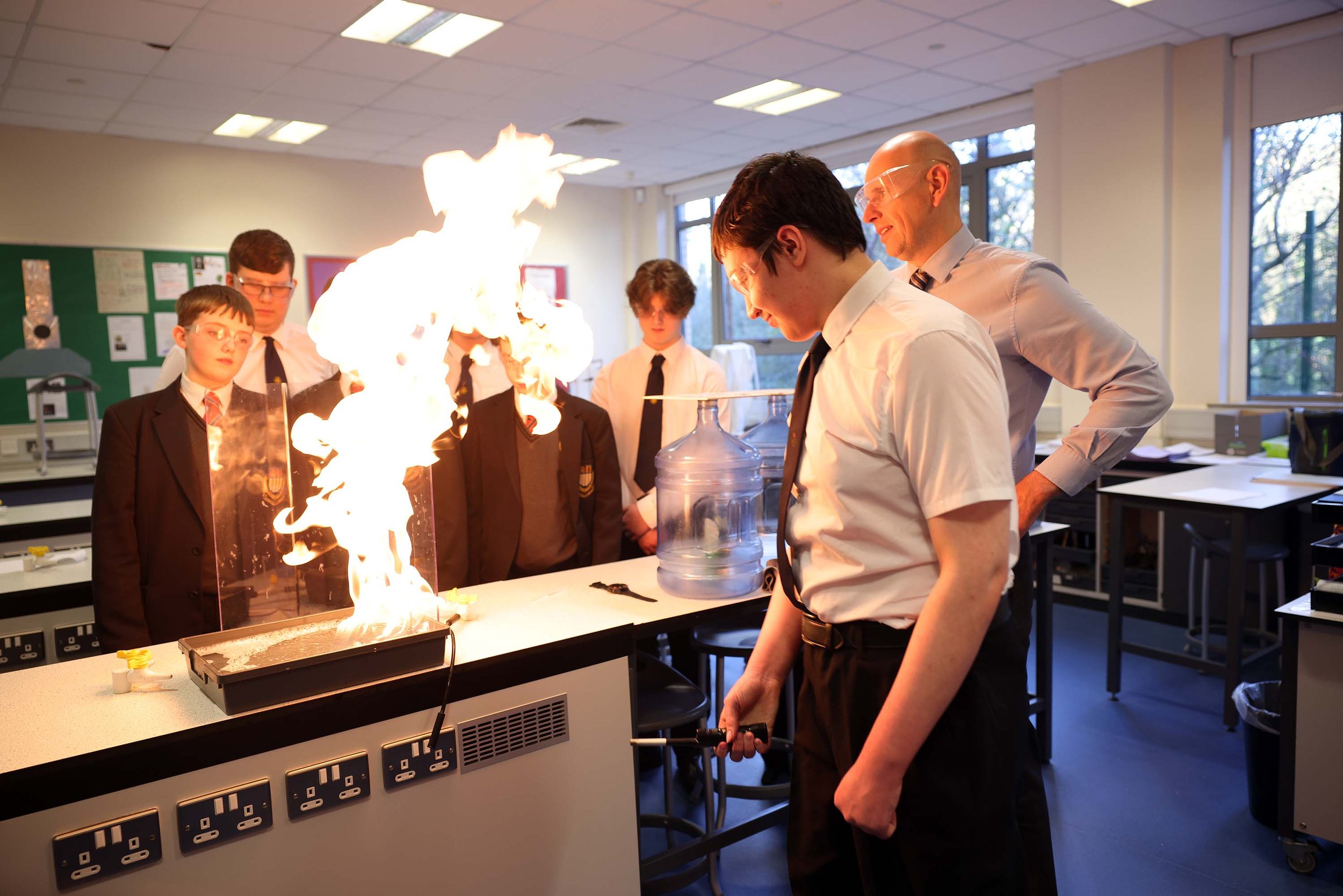Aims
To stimulate pupils’ curiosity and enthusiasm to develop a sense of wonder in science
To develop skills in scientific methods of enquiry
To engage pupils to develop understanding of the processes of science as well as content of scientific knowledge
Staff
Ms Open
Mrs Butterworth
Dr Clarke
Mrs Best
Mrs Dinsmore
Ms Doyle
Mr McBride
Mr Corey
Ms Evans
Key Stage 3
At Key Stage 3 we emphasise the practical delivery of science. The courses are broad, balanced and designed to take account of each pupil's level of ability. All themes are closely linked to the syllabus for CCEA Double and Single Award GCSE Science – providing pupils with a solid foundation on which to build.
Our modern labs provide a safe, comfortable and inspirational learning environment.
In Years 8 and 9, pupils are introduced to the Science laboratory and how to work safely within it. They enjoy developing their experimental and analytical skills.
In Year 10, the pupils begin their introduction to GCSE Single and Double Award Science courses. The topics they cover are closely linked with the CCEA specification and will provide a firm grounding for their next step in Science.
Key Stage 4
LEVEL 2 APPLIED SCIENCE, OCN
Consists of 3 essential internally assessed portfolio units:
Physical Processes: Energy, electricity, forces and motion, waves and radiation.
Life Processes and Living Things: Cellular structure and function, nutrition in plants, genetics and inheritance, interaction with the environment and enzymes.
Materials and their Chemical Properties: Structure and bonding, periodic table, chemical reactions and rates of reaction.
How it is Assessed
100% Internally assessed portfolio work
This is NOT suitable foundation for Post-16 Science.
GCSE Single Award Science, CCEA
Unit 1 Biology - 25%
Unit 2 Chemistry - 25%
Unit 3 Physics - 25%,
Unit 4 Practical Skills -Practical skills assessment - 7.5%, External written examination - 17.5%
Biology - Cells, Food and Diet, Genetics, Nervous system, plant and animal hormones. Pregnancy, Variation, Disease and body defenses, drugs.
Chemistry - Acids and bases, Elements mixtures and compounds, Separation. Atomic Structure, Periodic Table, Bonding, using materials to fight crimes. Symbols, formulae and equations, Qualitative analysis, Metals and the reactivity series, Energetics, Rates of reaction, Organic chemistry.
Physics - Electrical circuits, Ohm’s law.Household electricity, Energy, Electricity generation. Waves, Electromagnetic spectrum, Road transport and safety. Radioactivity,Earth in space.
How it is Assessed
3 x 1 hour written examinations (Biology, Physics and Chemistry)
1 x 2 hour Practical (experimental) examination followed by a 1 hour written examination (Booklet B)
GCSE Double Award Science, CCEA
Year 11
· Biology Unit B1: Cells, Living Processes and Biodiversity - 11%
· Chemistry Unit C1: Structures, Trends, Chemical Reactions, Quantitative Chemistry and Analysis - 11%
· Physics Unit P1: Motion, Force, Moments, Energy, Density, Kinetic Theory, Radioactivity, Nuclear Fission & Fusion - 11%
Year 12
· Biology Unit B2: Body Systems, Genetics, Microorganisms and Health - 14%
· Chemistry Unit C2: Further Chemical Reactions, Rates and Equilibrium, Calculations and Organic Chemistry - 14%
· Physics Unit P2: Waves, Light, Electricity, Magnetism, Electromagnetism and Space Physics - 14%
· Unit 7: Practical Skills - this comprises Unit 7 Biology, Unit 7 Chemistry and Unit 7 Physics. Paper A - 7.5% Paper B - 17.5%
How it is Assessed
3 x 1 hour written examinations (Biology, Physics and Chemistry)
1 x 2 hour Practical (experimental) examination followed by a 1 hour written examination (Booklet B)
Post 16
Biology
Exam Board: CCEA. 100% Written examination.
AS Level
Unit AS 1: Molecules and Cells - 15%
Unit AS 2: Organisms and Biodiversity - 15%
Unit AS 3: Practical Skills in AS Biology, External Assessment 1 Hour Exam plus Internal Practical Assessment - 10%
Key topics
AS 1 – Biological Molecules, Enzymes, Viruses, Cells, Continuity of Cells, Cell Physiology, Tissues and Organs
AS2 – Transport and Exchange, Circulatory System in mammals, Adaptations of Organisms, Biodiversity, Human Impact on Biodiversity.
A2 Level
Unit A2 1: Physiology, Coordination and Control, and Ecosystems, External Assessment - 24%
Unit A2 2: Biochemistry, Genetics and Evolutionary Trends, External Assessment - 24%
Unit A2 3: Practical Skills in Biology, External Assessment ( 1Hour Exam) plus Internal practical Assessment - 12%
Key Topics
A2 1 –Homeostasis, Immune System, Kidney and Excretion, Co-Ordination and control in plants and animals, Ecosystems.
A2 2- Respiration, Photosynthesis, DNA and the genetic code, Gene Technology, Genes and Patterns of Inheritance, Population
Genetics and Kingdoms.
LIFE AND HEALTH SCIENCES
Exam Board: CCEA.
33.3% Internally assessed portfolio
66.6% External Examination
AS Level
Unit AS 1: Experimental Techniques 13.3%
Unit AS 2: Human Body Systems 13.3%
Unit AS 3: Aspects of Physical Chemistry in Industrial Processes 13.3%
Key topics
AS1: 12 practical assessments aimed to develop their skills in performing a range of experimental techniques useful in biology, chemistry and physics.
AS 2: Respiration, healthy diet, deficiencies, circulation, respiratory systems
AS 3: chemical calculations, volumetric analysis, energetics, kinetics, equilibrium.
A2 Level
Unit A2 1: Scientific Method, Investigation, Analysis and Evaluation 20%
Unit A2 2: Organic Chemistry 20%
Unit A2 3: Medical Physics 20%
Key Topics
A2 1: Internally assessed portfolio of an in-depth scientific research paper.
A2 2: Organic compounds, hydrocarbons, spectroscopy, purification, preparation of aspirin, production of nylon.
A2 3- Monitoring health, diagnostic imaging, medical uses of radiation
Skills Developed
Manipulation Skills in Practical Work.
Leadership and Group working Skills
Problem Solving
Communication
Careers
Environmental Science
Biochemistry
Dentistry
Veterinary
Biological Sciences
Marine Biology
Nursing
Midwifery







